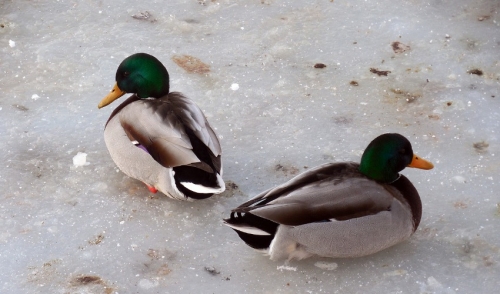
Getting Your Ducks in a Row Before Winter
Shorter days and colder nights are just around the corner. No matter what type of poultry you’re raising, the steps you take now can help you maintain egg production and save you from a mad “scramble” when the thermometer dips.
•Supplemental Lighting. Shorter days trigger molting. Molting results in more energy devoted to growing feathers and less energy devoted to egg production. One of the best ways to maintain egg production is to prevent a sudden molt. You can do this by providing supplemental lighting, extending the “daylight” hours to 14 to 16 hours per day. A single 60 to 100 watt bulb set on a timer will suffice. It’s best to extend the hours at the beginning of the day, so set the timer to turn the lights on before dawn. By employing this technique, any molt will be gradual and will not hinder egg production.
•Egg Gathering. The more your birds are confined during cold weather, the more frequently you should gather eggs. This will prevent other birds from pecking and breaking the eggs.
•Ventilation. While it’s important to weatherproof your coop to protect birds from the increasingly cold temperatures, you must still allow for adequate ventilation to help keep the litter dry. Otherwise, in such a confined area, ammonia can build up quickly. The hazards of ammonia can range from infection, to birth defects, to blindness. A simple way to test ammonia levels is to position your head at the same height as those of your birds’. Breathe normally. If, after a few seconds, your throat or eyes begin to burn, you have ammonia build up. Ventilation will reduce the moisture in your litter, which will help eliminate the ammonia.
•High-Quality Feed. Last but not least, during the cold weather months, it’s important to offer a high-quality complete feed instead of “scratch” alone. Purina Mills® Layena® SunFresh® Recipe is all natural and contains sufficient protein, vitamins, minerals—and even a touch of marigold extract—to produce hearty, golden-yoked eggs. And birds love the taste.
